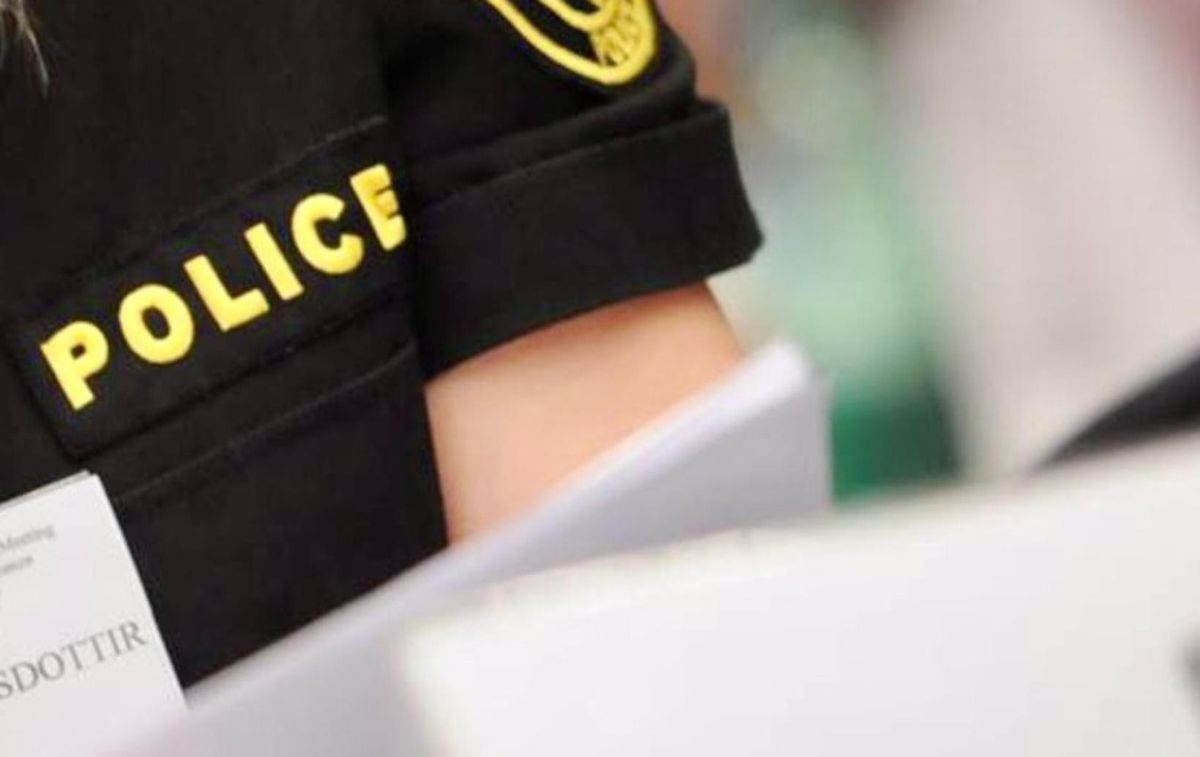Copyright mbl

“This is a small community where everyone knows everyone, and the origin of this case was that the Icelandic Food and Veterinary Authority ruled that a dog owned by this man had to be removed from his home. The agency requested that one of its staff be accompanied by police — and there were good reasons for that.” So begins the account of a veteran policewoman in rural Iceland, speaking to mbl.is about an incident that occurred in her district in 2013 — when she was dispatched to a call at her own home. She was alone on duty, the nearest backup hours away, and had just received a report that a man from the area was on his way to her house, intending to douse her with gasoline and burn her alive. Inside her home at that moment were her five-year-old son and his babysitter. Lost faith in the system She recently decided to tell her story publicly — an experience that shattered her faith in the Icelandic police structure and the justice system itself. She first broke her silence to Lögreglumaðurinn (The Policeman), the annual journal of the National Police Association, and later agreed to speak to mbl.is. Her goal, she says, is to expose the flaws of “the system” and describe how her case was deliberately suppressed in her hometown. The officer, who has served since before the turn of the century, does not appear by her real name. In the earlier interview she was called “Anna”, and she keeps that pseudonym here. “He was going to kill the cop” The man in question — well-known to the local police — was a troublemaker and drug user. When the local animal-control officer didn’t feel safe removing his dog, he requested police escort. “I was on duty that day with another officer. We just accompanied the man — he knocked, took the dog, and we left. I didn’t even do anything. My partner never had any problems — only me. This man knew who I was, who my parents were, everyone in my family,” Anna recalls. “In court, it even came up that he was inciting people against me, that my family would ‘pay for it.’” The man later received a six-month prison sentence, but none of the charges concerned his attempt to kill a police officer. Her supervisor, she says, “couldn’t have cared less.” That evening, the man left his home with a gasoline can, telling fellow users he was going to “kill the cop.” They panicked and called the local police chief directly — but the only officer on duty was Anna herself. “I heard the call — and it was my house” “I first heard about it over the Tetra radio system,” she says. “The dispatcher asked if I was alone on duty — because someone was on their way to my home to attack me.” The man later confessed to police that he planned to pour gasoline on her and light her on fire. “But that was never part of the indictment, never mentioned in court,” Anna says. “The only thing that saved me was that I was at work. I just got lucky.” Her young son was home with the babysitter when the man arrived, trying to kick the door down with the gas can in hand. “He didn’t manage it — and then he left.” No backup, no action “I called my supervisor, who was a sergeant, and basically had to beg him to come with me,” she says. “I called the babysitter — they waited until the man was gone, and we met them on the road between districts. Since they had left the house, we didn’t even go to the scene. I didn’t go home for two weeks. The man wasn’t arrested until half a month later — nothing was done.” Every officer on the local radio channel heard the dispatch asking whether Anna was alone and that someone was on their way to her house. “Someone must have been on duty in the next district — but no one offered help,” she says. “I can’t even tell my son” Anna emphasizes that she was never fit to respond to a call at her own home, let alone investigate her own case. “I can’t even talk to my son about this. He doesn’t know — I don’t want to create false memories by telling him,” she says. She recalls how tabloid journalists from DV hounded her afterward: “They kept calling. A coworker of ours always phoned DV first whenever something happened — that’s how they got my unlisted number.” Denied permission to hide her address She also criticizes the police for refusing her permission to keep her home address confidential. “After the verdict, it was easy to have an unlisted address. Then the law changed — you needed approval from the police chief. Mine just said no.” According to that interpretation, such an exemption was only justified if an imminent attack was expected. “Since I wasn’t working on a case that made it an issue, I wasn’t entitled to it,” she explains. “So I registered elsewhere. I will never again live at a registered address. No one will ever be able to look me up again.” Police officers, she insists, should not have to depend on their superiors’ permission to protect their privacy. “Cops in Iceland are easy targets — and so are their families.” What happened to the man? “I don’t know,” Anna says. “At one point he got cancer and had to go into detox, so he was forced to change his life. I think he’s clean now. I know his family — our kids went to the same school.” She pauses. “He came to my house to kill me, but it didn’t happen. So everyone just decided to forget it and hope it would be fine. That’s kind of the attitude — if nothing actually happened, just move on.” “No one talks about it — but something’s very wrong” Anna believes her case reflects a deep flaw in the system. “I didn’t even have formal standing in the case. I wasn’t offered legal counsel. And that man should have received far more help from the system than he did.” At the time, she says, the police culture was one of toughness and silence. “The first thing I was told when I started was that I just had to cope. No training, no guidance — just ‘suck it up.’” Now, she says, psychological support must be mandatory, not optional. “When this happened, there were almost no resources. You could apply for a few therapy sessions — that was it. Now it’s better, but still.” A broken system “There was nothing to catch you,” Anna says. “I had to file the complaint myself — nothing was supposed to be done. I went to a psychologist for ten sessions and was diagnosed with PTSD, but that therapist didn’t even feel qualified to treat me. I had to call around town looking for help. That was twelve years ago — at least there’s more expertise now.” Her goal now isn’t punishment but accountability. “My point isn’t that this man should have gone to prison. I just want to show how broken the system is.”



